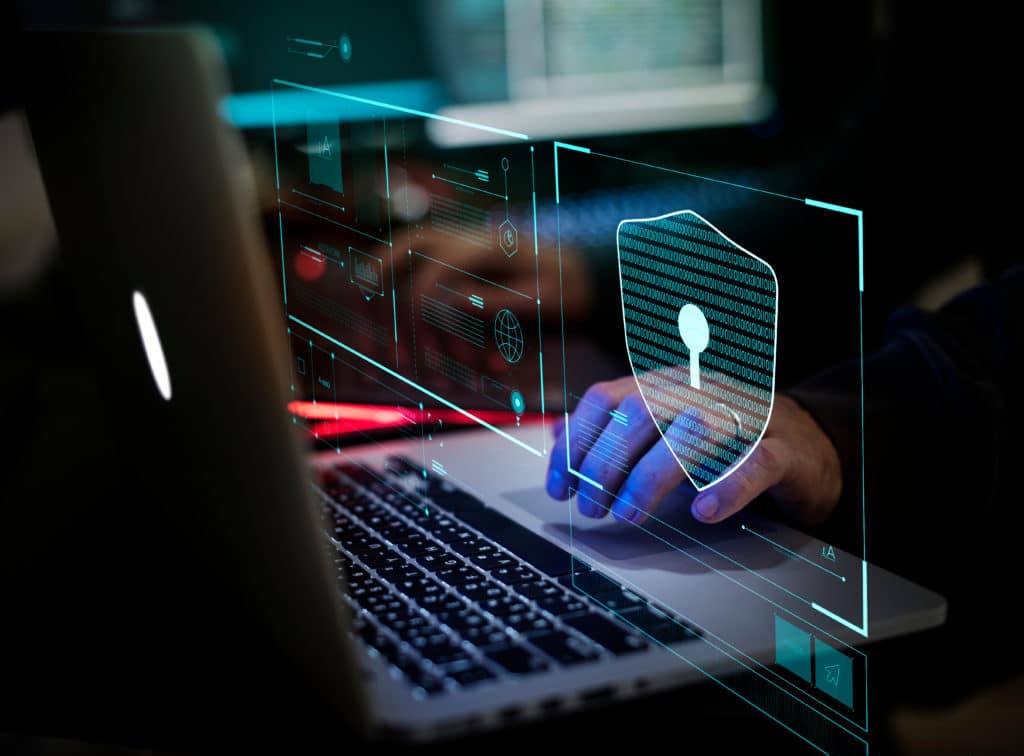The news of another massive online data breach may make you feel powerless to safeguard your privacy. However, you can take some concrete steps to protect yourself in the aftermath of the recent Colonial Pipeline cyberattack, as well as other breaches.
On May 7, 2021, Colonial Pipeline, an American oil pipeline system carrying gasoline and jet fuel, suffered a ransomware cyberattack. This attack impacted the computerized equipment managing the pipeline and had a major impact on the pipeline’s operations. This was the largest cyberattack on oil infrastructure in the history of the United States.
Colonial Pipeline released a statement on their website:
“Quickly after learning of the attack, Colonial proactively took certain systems offline to contain the threat. These actions temporarily halted all pipeline operations and affected some of our IT systems, which we are actively in the process of restoring.”
Global Impact
Colonial Pipeline supplies 45% of fuel supplies on the East Coast. The pipeline transports gas, diesel, home heating oil, and jet fuel through 2.5 million barrels each day and reaching more than 50 million people.
The Colonial Pipeline ransomware attack has also resulted in reports of gas shortages and price surges throughout some states. According to Gas Buddy, 70% of Washington, D.C. gas stations are reporting outages, along with 47% of North Carolina and 43% of South Carolina. And for the first time in more than six years, gas prices rose above $3 a gallon according to the Wall Street Journal.
Stay Vigilant
Colonial Pipeline was able to resume its operations as nearly a $5 million ransom was paid to Darkside, the hackers behind the ransomware attack.
Even with Colonial Pipeline paying the ransom, the FBI stated they do not agree with paying hackers ransom.
“The FBI does not support paying a ransom in response to a ransomware attack. Paying a ransom doesn’t guarantee you or your organization will get any data back. It also encourages perpetrators to target more victims and offers an incentive for others to get involved in this type of illegal activity.”
The FBI provided other solutions to avoid paying hackers:
- Keep operating systems, software, and applications current and up to date.
- Make sure anti-virus and anti-malware solutions are set to automatically update and run regular scans.
- Back up data regularly and double-check that those backups were completed.
- Secure your backups. Make sure they are not connected to the computers and networks they are backing up.
- Create a continuity plan in case your business or organization is the victim of a ransomware attack.
Protect Your Business
Businesses need to focus on risks to protect their organization. Our cybersecurity team has highlighted five key risks in a recent blog post.
For more information on protecting yourself or your organization, contact our cybersecurity team.
Related Insights

Featured Client Testimonials
BW is a true partner to us. Their knowledge, expertise, and service are a valuable resource to us and play an important role in our success!
John Allen - Vice President of Finance, Kaufman Container

Featured Client Testimonials
I appreciate the exceptional tax advice we received over the years. The (BW team) has a good grasp of our business needs. Thank you for your excellent service.
John Griffiths - Owner, Rae Ann, Inc.

Featured Client Testimonials
The BW team has been fantastic to work with; both the team member at our office as well as at the partner level. Any issues or concerns are handled very efficiently and effectively.
Kelley Needham - Chief Executive Officer, Epilepsy Association

Featured Client Testimonials
Barnes Wendling has been our company accountants for over seven years. Their knowledge has been instrumental in helping us grow strategically during this time. And although we’ve seen many changes in our economy that we cannot control, we’ve always been able to trust the Barnes team to be by our side. The Barnes team feels like family. We can’t thank them enough for their support!
Christine Kloss - Controller, AT&F

Featured Client Testimonials
Barnes Wendling has been our company accountants for over 15 years. During this time, the business has grown exceptionally, and Barnes has kept pace, providing accurate, quality advice. Our finances are more efficient than ever, and the expense of hiring Barnes has been a definite positive add to our bottom line. I give my highest recommendation to their firm.
David Miller, MD - President, Retina Associates of Cleveland

Featured Client Testimonials
Barnes Wendling has provided us guidance and recommendations that have strategically helped strengthen our business and position ourselves for growth. We needed to hire a new VP of Finance and Controller this past year, and they were instrumental in helping us find the best candidates for our company.
Sara Blankenship - President, Kaufman Container

Featured Client Testimonials
We value the trust, accuracy of information, and reliability of Barnes Wendling and Mike Essenmacher personally. Mike has been instrumental as a trusted advisor on accounting, tax, and personnel issues. His advice is always accurate, and he is very reliable. His associates are also very talented.
Dominic Ozanne - President and CEO, Ozanne Construction Company

Featured Client Testimonials
We value Barnes Wendling’s expertise with all things accounting so we can operate our business using our strengths and allowing them to be our experts. They have also brought me a few business sale opportunities to allow me to grow my assets.
John Gaydosh - President and Metallurgical Engineer, Ohio Metallurgical Service

Featured Client Testimonials
Barnes Wendling (especially Lena) did a great job with our financials. Everything. It is extremely refreshing and comforting to know that all of our numbers are not only correct, but they are in the right place(s). Your diligence and reporting truly does make me (personally) feel better.
Thomas Adomaitis - Controller, Bialosky Cleveland

Featured Client Testimonials
I can wholeheartedly tell you that I have yet to work with an audit or tax team that have been more helpful, easy to work with, and committed than the team at Barnes Wendling- I have been through three different firms in the last few years.
Michelle Saylor, Former Controller, Aero Mag

Featured Client Testimonials
Floyd Trouten at Barnes Wendling CPAs is an “expert’s expert” when it comes to M & A accounting. Not only does he understand the evolving details of the Tax Code but he also sees the fine points of their application for owners, managers, investors, and financiers.
Mark A. Filippell, Western Reserve Partners

Featured Client Testimonials
The service is amazing at Barnes Wendling CPAs. The benefit is worth more than the cost. Sometimes it’s true that you get what you pay for.
Mark Boucher - Former Owner, Castle Heating & Air









